QuestionPPS... to my other 2 emails a few minutes ago...
A few more additions I have noticed/remembered.. Is that Tillie seems to lick at his lips/nose alot... I have never noticed any of them doing this not during meal time or grooming before, so it has caught my attention with him doing it for no reason. His coat is silky and healthy, eyes are a little glazed/wet looking, but bright and clear. Has had a little discharge from the eyes (thick whiteish) (but has had his shots last month as I said). He would not eat ANY food tonight at all... (but did have those 3 tablespoons of wet stuff this morning), not sure about water or bathroom duties.
At night I lock the other 2 males up, and Tillie (m) and my only female are allowed loose, and they will both sleep on my bed with me contently. Tillie also loves to kneed my clothing. They are all outdoor/indoor cats. Tillie used to love staying in, and stayed close outside... untill we got the kitten, now he spends more time outside (except the past day... my locking him up may have upset him a little...)
There, thats it! I think... I know only a vet who can look at the cat can truely give an answer, but they always seem so rushed... Hopefully its jut the stress level, and I can lower that in due time and keep a good rutine (meal time is rutine always for them though)
Again.. sorry for all the emails, and being long winded...
Sincerely,
Denise :)
AnswerI'm glad you mentioned that - licking the nose and lips often indicates nausea or dehydration. So I would definitely say it's time for a vet visit, which I know is frustrating since you JUST saw them! But I think it's warranted.
Nausea and dehydration can be caused by numerous things. Fortunately, Tillie is much too young to be very likely affected by the more serious ones - liver failure, kidney failure and diabetes, for example. I would hope he's contracted a parasitic disease from going outside, like worms or protozoan infections. Protozoan infections can be deadly, but they can be controlled with antibiotics.
Some worm infestations have also been known to be deadly, especially in patients with hookworms. These live in the gastrointestinal tract and feed off blood. Nausea is frequently seen, but the biggest threat is serious anemia, which certainly can cause weakness and lethargy. Some cats require blood transfusions to survive a serious hookworm infestation.

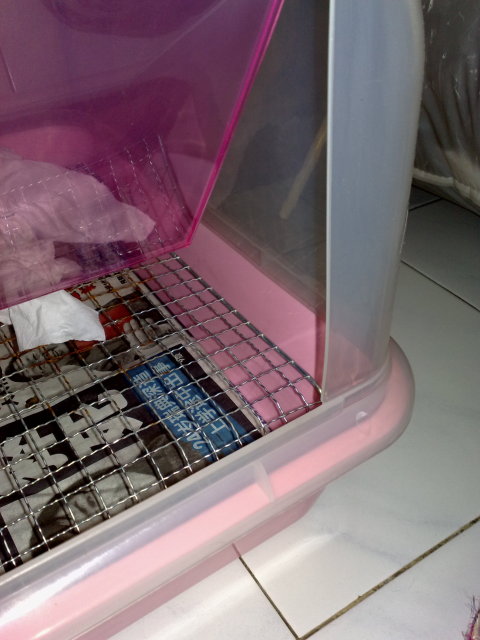 My cat doesnt piss on his litter box
QuestionLitter box
QUESTION: My 7months stray ca
My cat doesnt piss on his litter box
QuestionLitter box
QUESTION: My 7months stray ca
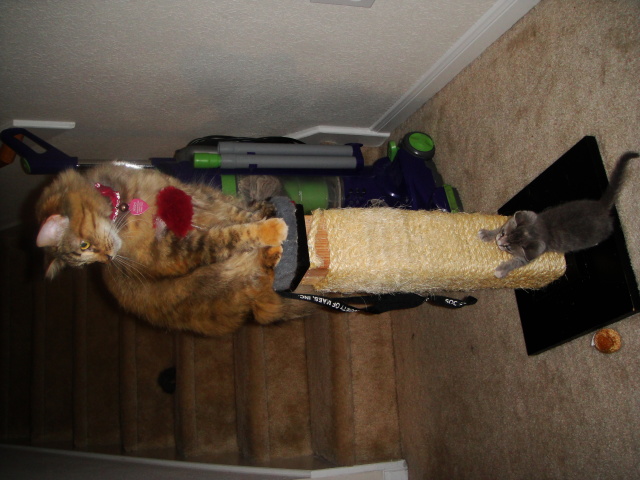 Kitten weaning questions
QuestionI just recently rescued a kitten of about 4 wee
Kitten weaning questions
QuestionI just recently rescued a kitten of about 4 wee
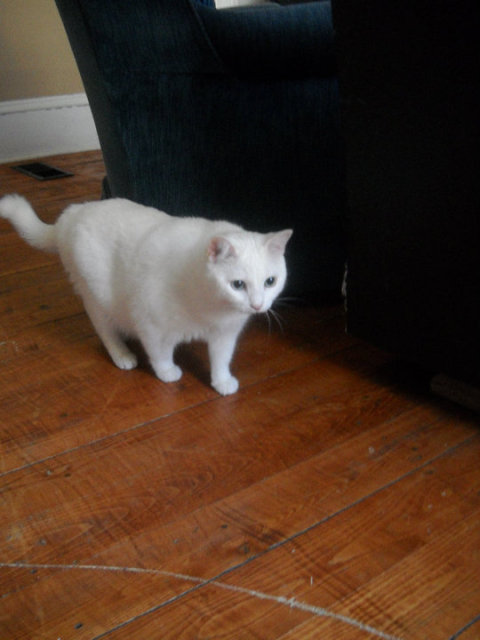 Breed Identification
Question
Zoey
I was curious if you could identify the b
Breed Identification
Question
Zoey
I was curious if you could identify the b
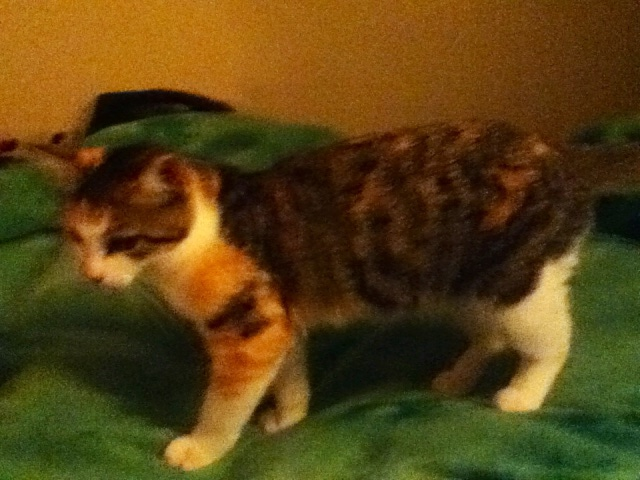 Short Tailed Manx Kitten
Question
Una Mica Una Mica
Hello,
I go
Short Tailed Manx Kitten
Question
Una Mica Una Mica
Hello,
I go
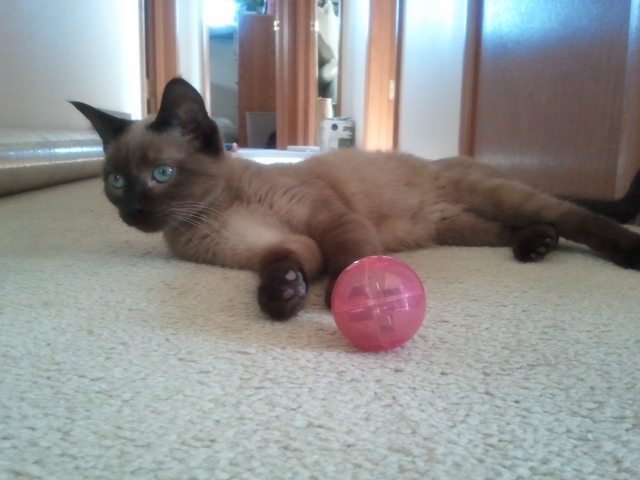 Cinnamon, mysterious Siamese
Question
Cinnamon - mysterious
Hi, I picked you
Cinnamon, mysterious Siamese
Question
Cinnamon - mysterious
Hi, I picked you